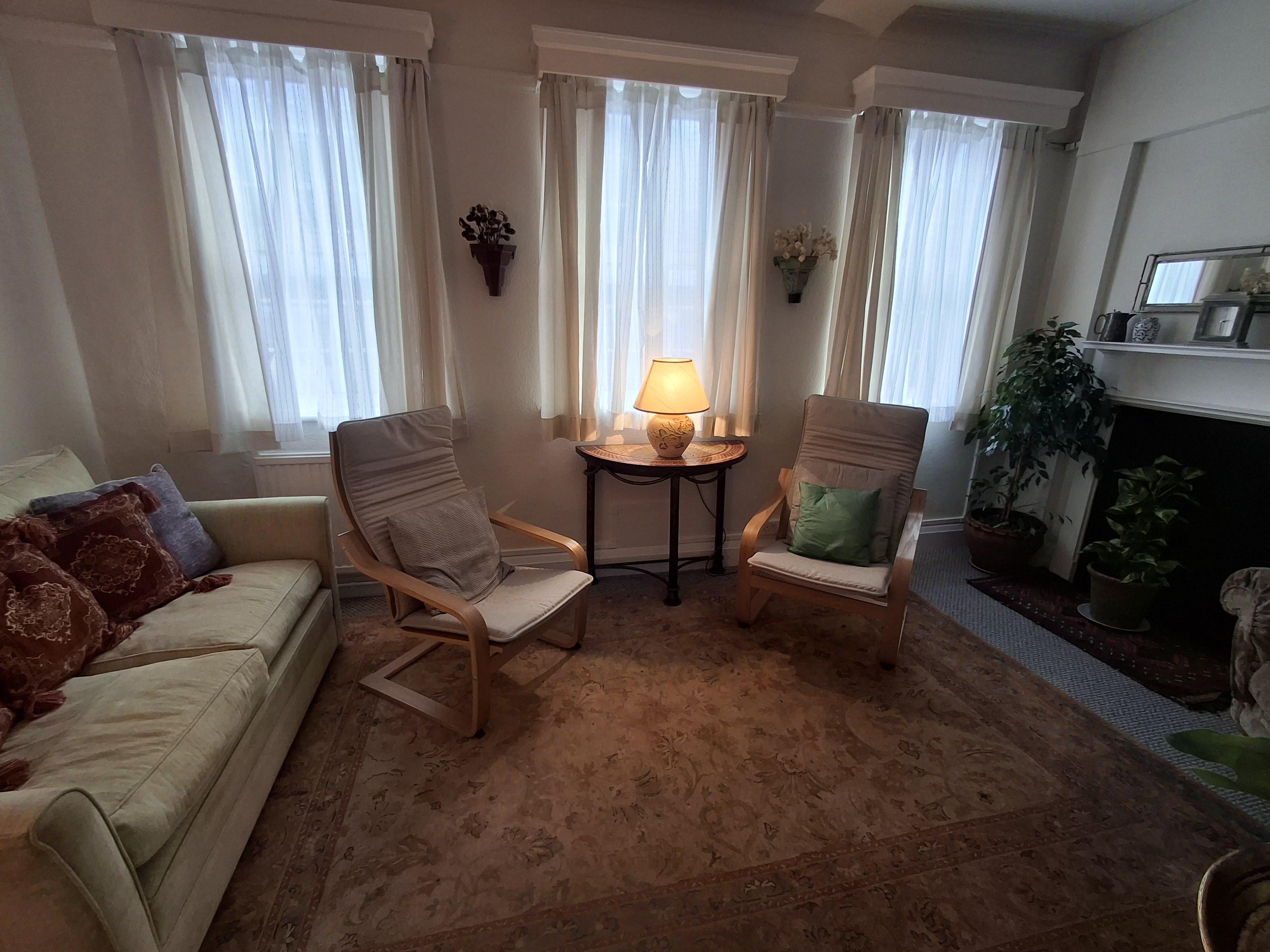How can counselling help me?
Not everyone will have exactly the same experience with their counselling process. As everyone is unique, so will their experience of counselling be. However, there are some common themes which a lot of people will experience with counselling and psychotherapy.
Firstly, a lot of people find that they get a real sense of relief when they are able to open up to someone else about their problems. Many people, for one reason or another don’t want to share what they’re going through with family members or friends. They prefer to have the opportunity to talk to someone who is essentially a stranger and does not personally know them. This often feels more comfortable for people and talking with a counsellor means that you can share your problems without fear of being judged.
I can offer you a safe, supportive and non-judgmental space to share your difficulties without the fear of being judged.
Also, many people find that when talking through their problems, they can start to make sense of things for themselves, both their internal and external world. This can increase their understanding of why they might be experiencing certain difficulties and why they might be experiencing certain emotions. Once they have this understanding, they are then in a much better position to work out a solution for themselves.
Through the counselling and therapy process, I am committed to helping you to increase your understanding and awareness of your current difficulties so you can then be clearer on what solution might be best for you and how you can best manage your difficulties.
One of the models I use in my counselling work, namely person-centred experiential counselling for depression has been found through a clinical study to be just as effective as cognitive behavioural therapy for treating depression.
My professional body, the British Association for Counselling & Psychotherapy have published the findings of this research on their website:-
How do you work?
I will adapt my way of working according to the needs of each individual client. I have training across various modalities, including psychodynamic therapy, humanistic therapy, existential therapy and transpersonal therapy as well as more recently completing training in person-centred experiential counselling for depression.
During the therapy process we may explore your past, including your childhood and explore how certain events and family dynamics may have impacted you. We may also consider how certain attachment styles may have formed in your childhood which may be impacting you in your relationships today.
We may also explore your emotions and consider how certain past events may have impacted you on an emotional level. Suppressed emotions can be a contributing factor to depression, so we would endeavour to explore what emotions you may have suppressed and help to bring them back to your conscious awareness. This then means that you are able to fully express and process these emotions so you can move towards a place of healing.
As part of the therapy, we may also explore what dynamics may be at play in your relationships including the interplay of co-dependency and narcissistic characteristics and traits. It is so important to bring awareness to the dynamics at play in your relationships so that you can increase your conscious awareness and understand why you might be experiencing certain difficulties.
Once you have developed your awareness of the different characteristics and traits which may be impacting on your relationships, you can then make a conscious choice about what, if anything, you may want to change.
Through all of these different ways of working, I will be by your side supporting you through any emotional upheaval you may be experiencing and supporting you to take the process at a pace which is comfortable for you.
How many sessions will I need?
Every client is unique and therefore it may differ considerably as to how many sessions will be right for each person.
However, as a guide, if you are looking to have short-term therapy, I would recommend 10 sessions as a good starting point. This can then be reviewed and extended as necessary.
If you are considering longer-term therapy, the average time I would work with clients would be from 1 to 2 years, sometimes longer if required.
However, these are just guidelines and it is important that you make the ultimate decision regarding how many sessions you feel that you need.
How much do you charge for sessions?
My fees range from £70 to £90 per session and each session lasts approximately 50 minutes.
I charge £70 for remote/video sessions via the video platform VSee which is the platform recommended by my professional body.
I charge £80 for face to face consultations at The Practice Rooms in Greenwich and I charge £90 for face to face consultations at The Practice Rooms in Soho.
What will happen in our first session together?
At your initial counselling session, this will be an opportunity for us to get to know each other and I can explain a little bit more about how I work and I can answer any questions you might have.
This will also be an opportunity for me to find out more about what has brought you to counselling and what you would like help and support with. This will be an opportunity for you to tell me in detail about your current situation and circumstances and what you would like help with. We would also consider in this session what your goals might be for therapy and what you are hoping to achieve from the therapy process.
After this initial session, if you decide that you would like to book in further sessions, I will then provide you with a copy of my counselling contract which will explain in more detail the practicalities of how the sessions will work and what to expect from the counselling process.
If you would like to book an appointment, please contact me on 07769 610711 or email me at sascha@codependencycounselling.co.uk. I very much look forward to welcoming you to my calming therapy space.




